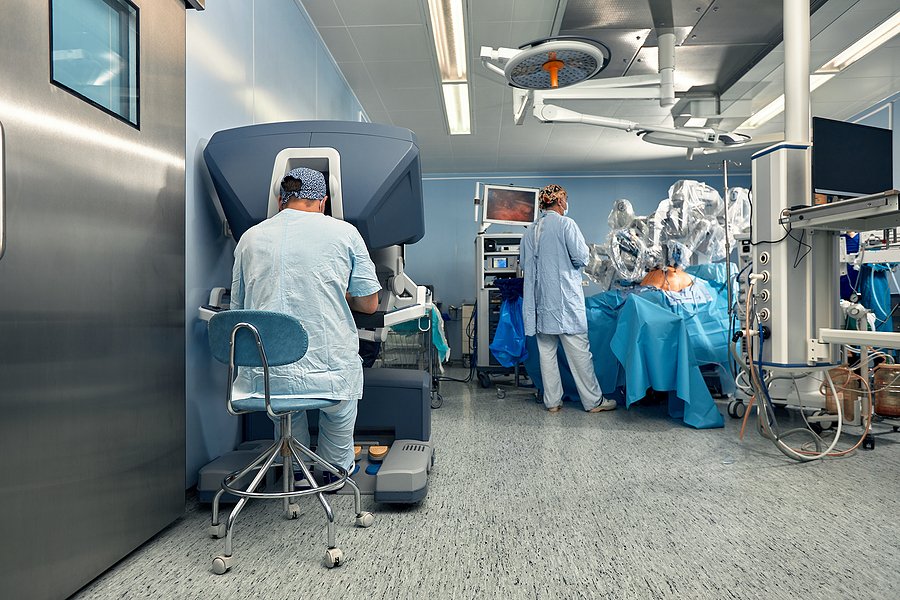Medical professionals are in danger of being replaced by a talented cadre of ‘technician’ colleagues who are quicker and easier (and most importantly cheaper) to train and able to perform many of the day-to-day tasks of their comprehensively trained colleagues.
For Physicians, read Physician Assistants (PA) and Nurse Practitioners (NP), collectively referred to a "mid-level providers" or "physician extenders". These are common in the United States. For Paramedics it’s Emergency Medical Technicians, anaesthetists have nurse anaesthetists and so on. The PAs were something I first came across on my elective at NYU in 2011. They just weren’t a thing in the UK until recently. Now I find myself delivering lectures on abdominal and chest trauma for their undergraduate degree programmes. My specialist bariatric dietician is currently enrolled on a post-graduate programme which, upon completion, will equip her to assess patients and prescribe medication. I’ve worked with countless NPs who capably fill doctor vacancies in EDs and on the wards, performing at the level of junior residents and becoming integral members of the department.
In the UK, scrub nurses routinely act as first assistants or ‘Surgical Care Practitioners’ when operating with consultants, particularly in the private sector. With the increasing provision of robotic surgery, there is a very pertinent question around how big the surgical workforce of the future actually needs to be. Could 1 surgeon leading a team of techs fulfil all the roles of a traditional medical team or ‘firm’?
But every cloud has a silver lining and rather than being fearful of what these changes mean for doctors in developed countries, one could instead look to the potential benefits for poorer countries.
In countries such as Mozambique, surgeons take a lead role in training up ‘medico tecnicos’ to be able to perform things like limb amputations and abscess drainage. They follow in the illustrious footsteps of Hamilton Naki, the black South African lab tech who came to be a renowned surgical assistant to Christiaan Barnard, the man who performed the world’s first human-to-human heart transplant in December 1967. Although the degree of his involvement in that famous case are disputed, he was widely respected for his surgical skills and teaching; an art he honed, without formal medical training, on various animal models in the labs.
A 2010 study of over 2000 emergency obstetric theatre cases in Mozambique and Tanzania found no significant outcome differences in cases performed by surgical technicians and obstetric specialists. Techs were found to be a cost-effective way of addressing staff shortages in rural areas. Their retention in these rural areas, where they were needed most, reached almost 90% at seven years after graduation while the corresponding percentage for medical officers was zero. Similar favourable outcomes have been demonstrated across Sub-Saharan African. Despite reports of their positive impact on population access to surgery, techs face significant challenges including lack of recognition by medical doctors, resulting in marginalisation and loss of motivation. Lack of career opportunities and low salary packages are perceived by them as unfair. A study from Tanzania reported that low motivation among techs, stemming from an experience of low social status and remuneration, was associated with the provision of poor quality of care.
There is a crisis in personnel in Western healthcare which has been deepened over the past year or two by COVID and inflationary pressure on wages which has forced many to leave the professional or seek to earn more overseas. There are also chronic problems with training and retaining doctors in poorer countries with inadequate healthcare setups and crumbling infrastructures accelerating a ‘brain drain’ to the West. In both cases, the solution may be found by empowering and training up a hidden army of enthusiastic and dedicated allied health professionals and technicians to lead the way in providing care for their local communities.
Obi Nnajiuba is a British surgical resident with a specialist interest in trauma, acute care, prehospital care, triage, mass casualty events and trauma systems. His postgraduate qualifications include an MSc in Trauma Sciences and membership of the Royal College of Surgeons of England. He was recently awarded his PhD for his work on optimising the London Trauma System Triage Tool. He is also a registered Motorsport UK physician, providing trackside advanced trauma care to competitors at world famous motor-racing circuits such as Brands Hatch, Goodwood and Silverstone.


